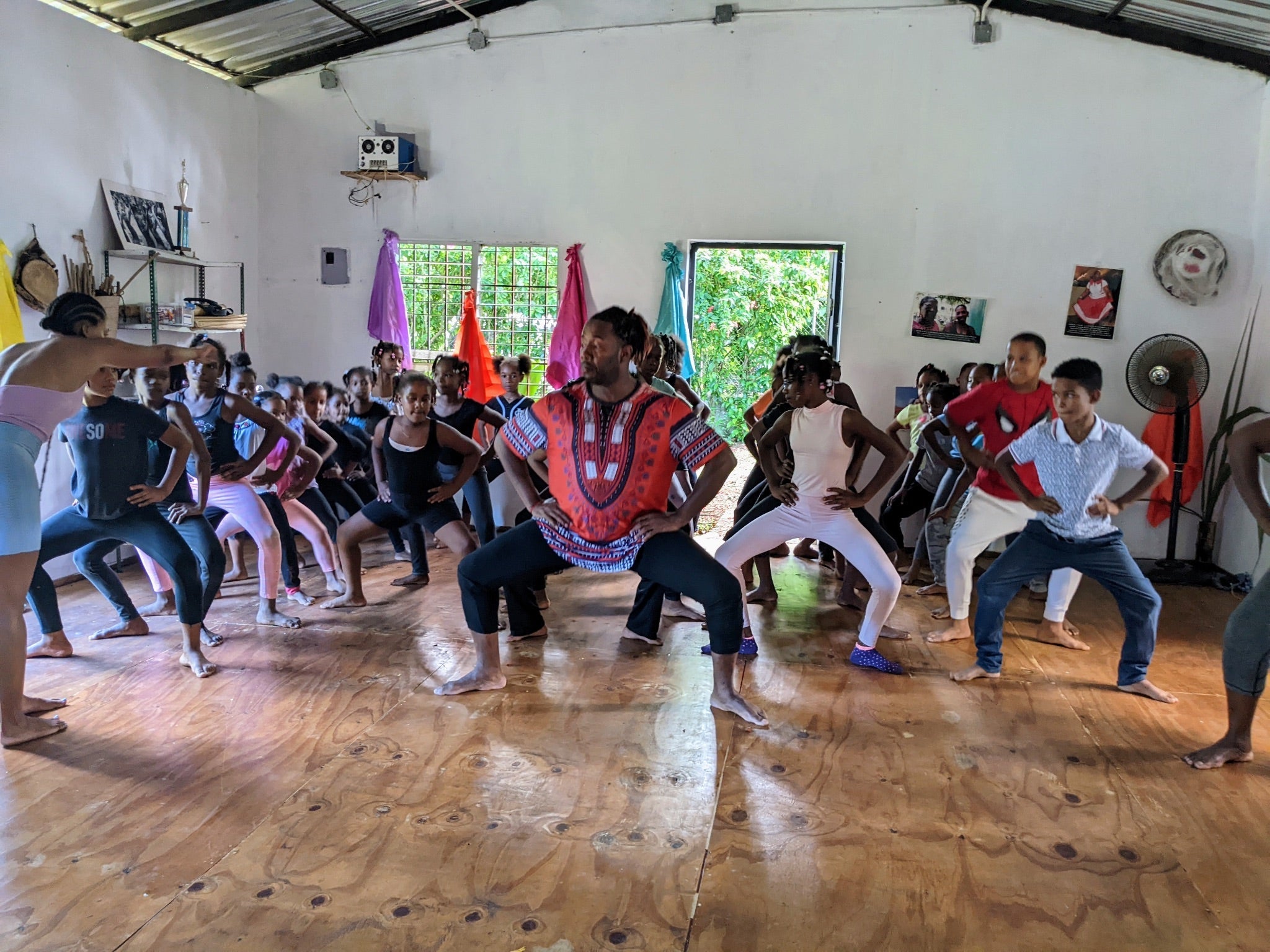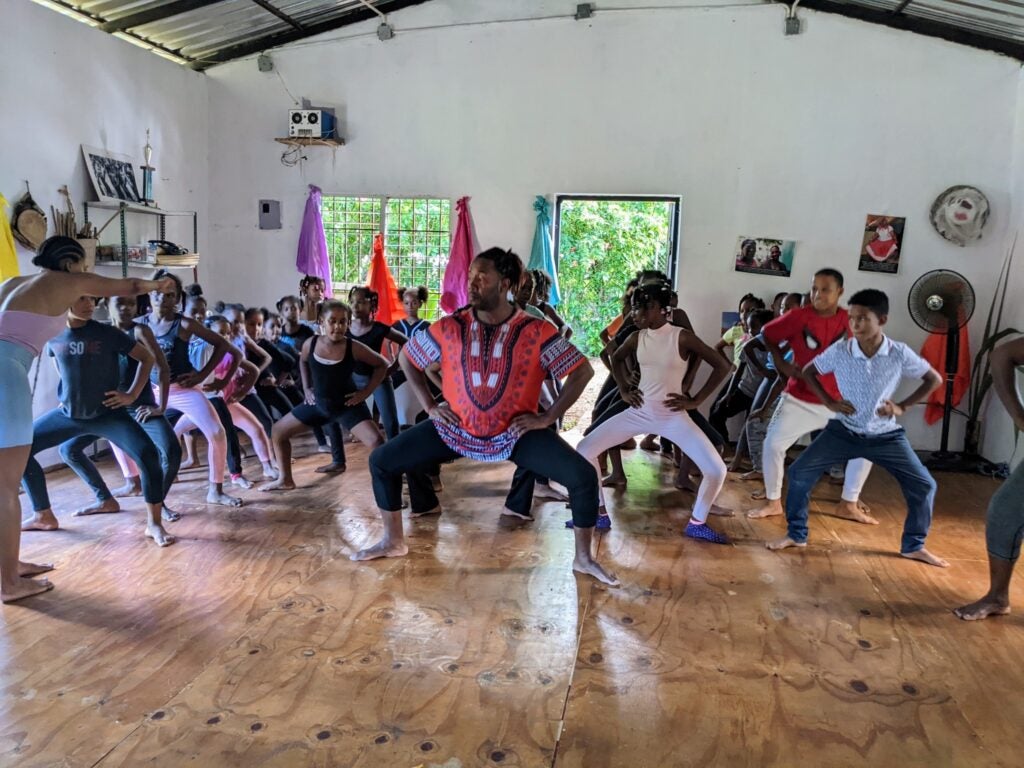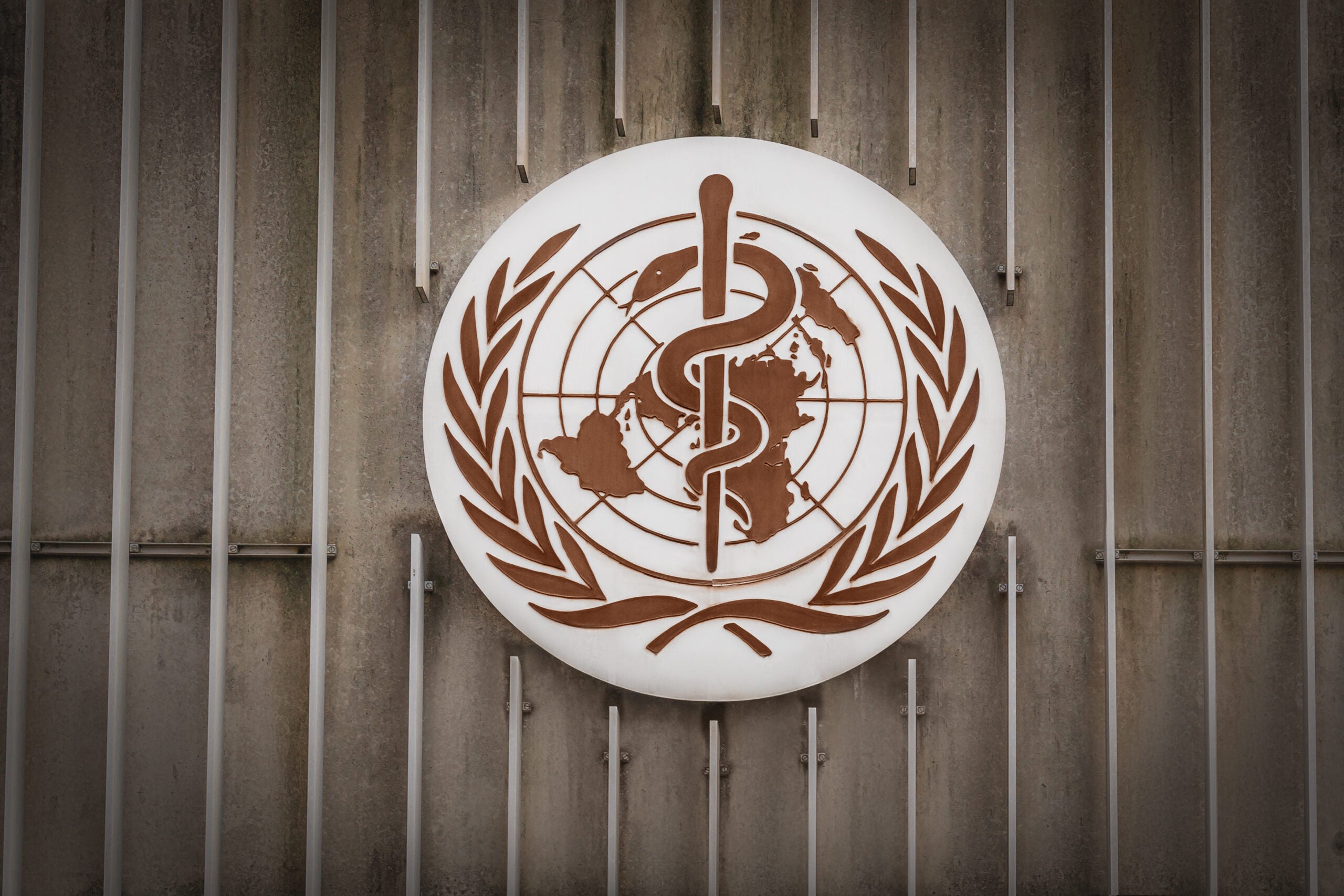2023: Year in Review

The HPRC team is excited to share this reflection on all our successes in 2023. From highlighting our research in a poster for APHA’s Annual Meeting to re-releasing the CHOICES National Action Kit 2.0 with a variety of new data and information to collaborating with a local contemporary dance company to enhance their staff’s research skills to hosting the 11th cohort of emerging health leaders, this year was full of accomplishments for our team! Read on to learn more about our 2023 highlights, presented within the four key areas in which our Center is focused. Learn more about these key areas and what we do.
Collaborate with Partners to Identify Evidence-Based Interventions
APHA Poster Highlights Cost-Effective Solutions to Prevent Chronic Disease in Boston, MA
At the 2023 American Public Health Association’s Annual Meeting in November, Mary Bovenzi, Director of the Chronic Disease Prevention and Control Division at the Boston Public Health Commission, presented a poster highlighting key findings from the first three years of our partnership through the Massachusetts-CHOICES project.
The poster emphasized the critical role of resource allocation in addressing chronic diseases, a challenge that many health departments face. The BPHC and HPRC CHOICES teams applied a cost-effectiveness analysis framework to model the potential outcomes of various policies and programs to improve child health over a 10-year period. These projections demonstrated significant impact, reaching between 3,320 to 29,400 children per strategy over 10 years, with an average annual cost ranging from $7.60 to $540 per child. Additionally, all projected policies and programs were deemed cost-effective, with a potential to improve health equity by reaching those with the greatest needs for improved nutrition and physical activity.[1]
Through this project, the BPHC team strengthened partnerships with state and local organizations, including early education and care programs, public schools, and afterschool programs. The use of cost-effectiveness analysis allowed the BPHC team to align its goals with available resources, prioritizing strategies that are both effective and equitable. Using cost-effectiveness analysis is crucial for prioritizing prevention policies and programs that offer good value for money, ultimately creating healthier and more equitable communities.

Poster citation:
1Bovenzi M, Carter S, Clarke J, Reiner JF, Barrett JL, Bolton A, McCulloch SM, Garrone ME, Cradock AL, Gortmaker SL. Building skills to implement community-based solutions to prevent chronic disease using cost-effectiveness analysis with interdisciplinary partners: Learnings from Boston, MA. Poster presented at: American Public Health Association Annual Meeting; November 2023; Atlanta, GA.
This year, the HPRC team completed the fourth year of its core research project, the Massachusetts-CHOICES Project, which collaborates with the Massachusetts Department of Public Health and the Boston Public Health Commission (BPHC) to evaluate the cost-effectiveness of strategies to promote healthy eating, active living, prevent excess weight gain, and improve health equity. Year 4 focused on disseminating project findings to key audiences to inform future project planning and prioritization.
The HPRC team initiated Year 5 of this project – the final year – which is focused on translation of this work, and also published three briefs from the project this year:
- Massachusetts: Movement Breaks in the Classroom
- Massachusetts: Water Dispensers in Schools
- Boston, MA: Creating Healthier Afterschool Environments (OSNAP)
We are looking forward to this final year of collaboration with both the BPHC and MDPH teams!
Promote Healthy Weight, Nutrition, Physical Activity, & Health Equity
Guide Planning & Prioritization to Invest Responsibly in Policies & Programs to Improve Child Health Using the CHOICES National Action Kit 2.0
One of our key accomplishments in 2023 was the release of the CHOICES National Action Kit 2.0, a tool for exploring and comparing effective strategies to improve child health.
The HPRC CHOICES team was thrilled to announce the launch of the second iteration of this tool, marking a significant evolution from its original release in 2019. This new version not only includes more policies and programs for comparison, but also offers more detailed projections of national population reach, health impact, implementation costs, and cost-effectiveness. Notably, this updated version provides intricate insights into the costs of individual strategies and offers a deeper understanding of their potential effects on health equity.
As part of this re-release, we’ve now made several reports available that describe the projected national population reach, impact on health and health equity, implementation costs, and cost-effectiveness for each strategy. These reports are accessible both with the Kit itself and via the CHOICES Resource Library.
Investing responsibly matters now more than ever – and the CHOICES National Action Kit 2.0 is a timely resource to guide planning and prioritization of cost-effective policies and programs that have strong evidence that they can make a difference in promoting healthy weight, nutrition, physical activity, and health equity. The data and insights available through this tool can equip decision-makers with comprehensive information to ensure judicious investments.
Offer Resources & Training Opportunities
Supporting Jean Appolon Expressions’ Fusion of Dance and Wellbeing
The HPRC strives to meet the needs of our community partners and the people they serve. Over the past few years, we’ve been offering one-on-one technical assistance to support planning, evaluation, communications, and grant writing activities focused on nutrition and physical activity topics.
This past spring, the HPRC team began a partnership with staff at Jean Appolon Expressions (JAE), a contemporary dance company that is deeply rooted in Haitian-folkloric culture that celebrates, nurtures, and empowers a global community. Thanks to an introduction through HPRC Community Advisory Board co-chair, Nineequa Blanding, HPRC team members Bekka Lee, Kamini Mallick, Stephanie McCulloch, and Raffi Pontes (SBS MPH ’23) partnered with JAE staff to conduct a literature review to explore evidence demonstrating the health benefits of dance in addition to developing a survey to collect data from dancers on physical and mental impacts they experience from dance.

The partnership also yielded the development of guidance for mapping the relationships between dancers and using Photovoice. Photovoice is a method using images to bring light to a specific issue and empowers participants to be involved in the solution-building process in their own communities. JAE staff fielded the survey, relationship mapping, and Photovoice methods at the JAE Summer Dance Institutes (SDI) in Haiti and the Dominican Republic in Summer 2023. The aim of this process was to amplify the profound impact of the program on students’ mental and physical health. Findings will be included in the organization’s annual report and future fundraising campaigns. This fall, two JAE staff members, Bisi Xotyeni and Tammi Fedestin, joined our 2023 cohort of Leaders in Health where they learned to situate these evaluation methods in the broader context of public health.
We look forward to continuing to support other community organizations in the future!
New Resources
This year, we shared a variety of new resources and peer-reviewed publications that align with our Center’s Priority Areas (healthy eating, physical activity, sugary drinks, drinking water access and intake, and unhealthy food and beverage marketing).
Refreshed OSNAP.org Website
The Out-of-School Nutrition and Physical Activity Initiative (OSNAP) is an evidence-based initiative that helps out-of-school time programs improve policies and practices to help kids move more and eat healthier snacks. This year, we refreshed the look, feel, and functionality of the OSNAP website to better support afterschool leaders who are looking for resources and training materials to assess and improve the quality of their programs.
Introducing: The CHOICES Project Resource Library
The CHOICES Project offers a variety of resources and tools to support planning and prioritization of evidence-based, cost-effective policies and programs to help kids move more and eat healthy. With this new library, users can now search more easily for resources by filtering by resource type, setting, and topic area. You can also login to the CHOICES Community of Practice online portal or register to join to access exclusive Community of Practice resources.
Food insecurity and the role of food assistance programs in supporting diet quality during the COVID-19 pandemic in Massachusetts.(Lee MM, Poole MK, Zack RM, Fiechtner L, Rimm EB, Kenney EL, Front Nutr, January 5, 2023)
Perceptions of water safety and tap water taste and their associations with beverage intake among U.S. adults. (Park S, Onufrak S, Cradock A, Patel A, Hecht C, Blanck HM., Am J Health Promot, January 6, 2023).
Food Allergy Management for Adolescents Using Behavioral Incentives: A Randomized Trial. (Dupuis R, Feuerstein-Simon R, Brown-Whitehorn TF, Spergel JM, Volpp KG, Marti XL, Troxel AB, Meisel ZF, Mollen CJ, Kenney EL, Block J, Gortmaker SL, Cannuscio CC, Pediatrics, February 1, 2023)
Adherence to Healthy Default Beverage Laws for Children’s Meals in 3 U.S. Cities. (Zaltz DA, Lee DL, Woodward-Lopez G, Ritchie LD, Bleich SN, Benjamin-Neelon SE, Am J Prev Med, February 8, 2023)
Naming Matters: Prompting Smaller Portions in an Online RCT. (Hua SV, Kenney EL, Miller JM, Musicus AA, Roberto CA, Thorndike AN, Rimm EB, Am J Prev Med, February 14, 2023)
Embedding community-engaged research principles in implementation science: The implementation science center for cancer control equity. (Kruse GR, Lee RM, Aschbrenner KA, Daly JG, Dargon-Hart S, Davies ME, Gundersen DA, Pelton-Cairns L, Winickoff JP, Taveras E, Emmons KM; ISCCCE Consortium, Journal of Clinical and Translational Science, March 2023)
Opportunities to Promote Food and Nutrition Security as the Federal Public Health Emergency Ends. (Bleich SN, Fiechtner L, Kenney EL, JAMA Health Forum, April 7, 2023)
Data sharing in the context of community-engaged research partnerships. (Emmons KM, Mendez S, Lee RM, Erani D, Mascioli L, Abreu M, Adams S, Daly J, Bierer BE; RADx-MA Partners, Social Science & Medicine, May 2023)
How WIC Can Help Enhance Water Security for At-Risk Populations. (Wilking C, Nink E, Cradock AL. Journal of the Academy of Nutrition and Dietetics, May 2023)
Safe streets for some: A review of local active transportation responses across the U.S. during the COVID-19 pandemic. (Dean MD, Amaya KA, Hall J, Gupta KM, Panik RT, Gustat J, Cradock AL, Journal of Transport & Health, May 30, 2023)
Perceptions of Water Safety and Tap Water Taste and Their Associations With Beverage Intake Among U.S. Adults. (Park S, Onufrak SJ, Cradock AL, Patel A, Hecht C, Blanck HM, American Journal of Health Promotion, June 2023)
A South Asian Mediterranean-style diet is associated with favorable adiposity measures and lower diabetes risk: The MASALA cohort. (Rai SK, Gortmaker SL, Hu FB, Kanaya AM, Kandula NR, Sun Q, Bhupathiraju SN, Obesity (Silver Spring), June 2023)
De-implementing public health policies: a qualitative study of the process of implementing and then removing body mass index (BMI) report cards in Massachusetts public schools. (Poole MK, Lee RM, Kinderknecht KL, Kenney EL, Implementation Science Communications, June 9, 2023)
State-Specific Prevalence of Severe Obesity Among Adults in the US Using Bias Correction of Self-Reported Body Mass Index. (Zhao L, Park S, Ward ZJ, Cradock AL, Gortmaker SL, Blanck HM, Preventing Chronic Disease, July 2023)
The societal costs and health impacts on obesity of BMI report cards in US schools. (Poole MK, Gortmaker SL, Barrett JL, McCulloch SM, Rimm EB, Emmons KM, Ward ZJ, Kenney EL, Obesity (Silver Spring), July 2023)
A Sugar-Sweetened Beverage Excise Tax in California: Projected Benefits for Population Obesity and Health Equity. (Lee MM, Barrett JL, Kenney EL, Gouck J, Whetstone L, McCulloch SM, Cradock AL, Long MW, Ward ZJ, Rohrer B, Williams DR, Gortmaker SL, American Journal of Preventive Medicine, August 2023)
Cost-Effectiveness of Calorie Labeling at Large Fast-Food Chains Across the U.S. (Dupuis R, Block JP, Barrett JL, Long MW, Petimar J, Ward ZJ, Kenney EL, Musicus AA, Cannuscio CC, Williams DR, Bleich SN, Gortmaker SL, American Journal of Preventive Medicine, August 2023)
Implementation of evidence-based primary cancer prevention interventions in MA community health centers: an explanatory sequential mixed methods study. (Lee RM, Daly JG, Mallick K, Ramanadhan S, Huebner Torres C, Hayes CR, Bertolini A, Nalls R, Emmons KM, the ISCCCE Partnership, Implementation Sciences Communications, August 2023)
US drinking water quality: exposure risk profiles for seven legacy and emerging contaminants. (Levin R, Villanueva CM, Beene D, Cradock AL, Donat-Vargas C, Lewis J, Martinez-Morata I, Minovi D, Nigra AE, Olson ED, Schaider LA, Ward MH, Deziel NC, Journal of Exposure Science & Environmental Epidemiology, September 2023)
Use of Evidence-Based Interventions to Promote Healthy Weight, Nutrition, and Physical Activity in Community Health Improvement Plans from Large Local Health Departments. (Dupuis R, Reiner JF, Silver S, Barrett JL, Daly JG, Lee RM, Gortmaker SL, Cradock AL, Journal of Public Health Management and Practice, September/October 2023).
Daily Saturated Fat and Sodium Content of Elementary School Meals in a Large Sample of 128 Geographically Diverse School Systems in the United States. (Chapman LE, Richardson SA, Rimm EB, Gortmaker SL, Lee MM, Cohen JFW, Journal of the Academy of Nutrition and Dietetics, October 2023)
Gortmaker SL. Cost-Effective Interventions That Can Prevent Obesity and Chronic Disease and Improve Health Equity. National Institutes of Health Prevention in Focus webinar. January 19, 2023. https://prevention.nih.gov/education-training/prevention-focus-webinars/cost-effective-interventions-can-prevent-obesity-and-chronic-disease-and-improve-health-equity
Build Capacity for Conducting Community-Engaged Research
Celebrating the 11th Leaders in Health 2023 Cohort
This fall, we held the 11th cohort of participants representing a broad range of organizations from throughout the state of Massachusetts.
This fall, we hosted the 11th cohort of Leaders in Health, our community training program that helps build the capacity of our community partners by providing participants with an introduction to public health, including the fundamentals of community-based participatory research and program design and evaluation. Nine participants from throughout the state of Massachusetts joined, representing organizations that focus on a range of topics, including oral health, mental health, nutrition and physical activity, and others. The program took place from September through November, spanning eight weeks, featuring a hybrid approach of virtual and in-person learning sessions.
Leaders in Health Alumnus on GBH’s All Things Considered
A member of the 11th cohort of Leaders in Health and founder of PureSpark, Nieisha Deed, recently spoke with GBH’s All Things Considered host Judie Yuill about her personal experiences with mental health care and fostering better care and mental wellness within the Black community.
PureSpark is committed to tackling disparities in mental health care within the Greater Boston area and pioneered the state’s inaugural wellness directory tailored for Black individuals. Through this week, Nieisha’s mission is to reduce stigma around seeking mental health support and empower individuals to develop coping mechanisms.
Five Questions with a Leaders in Health Alumni
The Leaders in Health program strengthens community health initiatives through introductory training in public health research and science. The goal of Leaders in Health is to build the capacity of our community partners by providing participants with an introduction to the fundamentals of community-based participatory research, program planning, and evaluation. Participants attend interactive training sessions, complete assignments, and receive support to create an action plan to enhance their work.
We’re excited to regularly feature Leaders in Health alumni both in our quarterly updates and on the Leaders in Health page to highlight the successes that they accomplished in their cohort and beyond in their daily work. Adriana Tejada, Health Communications Manager at the Massachusetts Department of Public Health and MPH Candidate at the University of Michigan’s School of Public Health, participated in the 2021 Leaders in Health Cohort and answered five questions about her experience and what she’s up to now.

Adriana Tejada
Health Communications Manager at the Massachusetts Department of Public Health | MPH Candidate at the University of Michigan’s School of Public Health
Adriana participated in the 2021 Leaders in Health Cohort and answered five questions about her experience and what she’s up to now. Read the interview!


